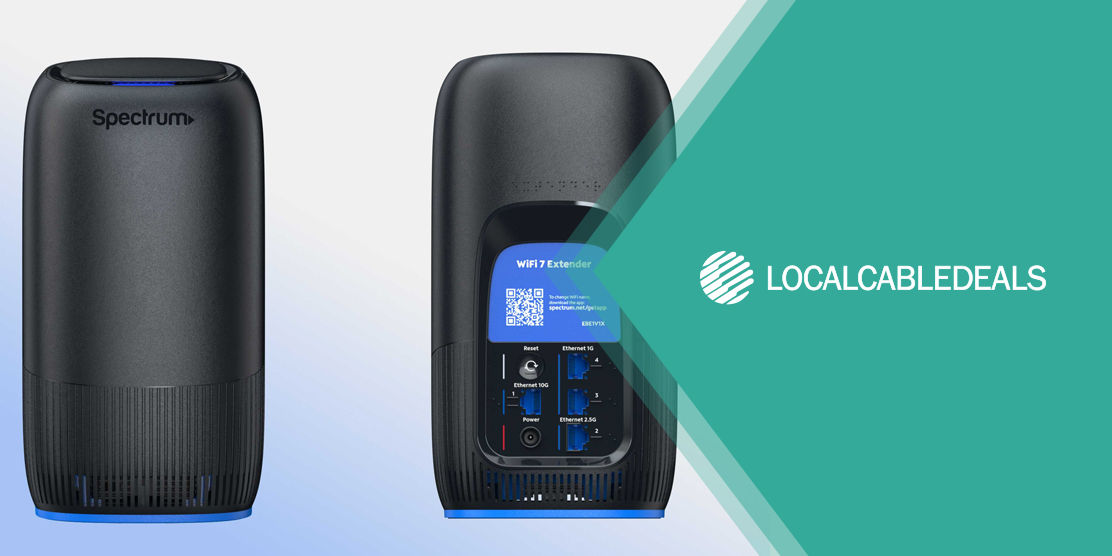Are you done with your current internet service provider (ISP)? Have you thought about cutting the cord several times and then caught cold feet? We get it. Change can be overwhelming and, in this case, there's also the fear of interrupted service.
People switch ISPs for many reasons; sometimes it's a necessity and other times a choice. For instance, if you're moving and your current ISP doesn't operate in your new neighborhood, you don't have a second option.
Either way, making the switch may seem like a challenging task - but it doesn't have to be! You can now switch ISPs without losing internet service, and we'll tell you how. There's always a smart way to work around things, so are you ready to move on?

Things to Consider Before Switching ISPs
Even if as little as an ounce of doubt exists, take a moment to rethink this decision. Ask yourself: how will the alternate ISP improve my online experience or make my life easier?
When comparing your internet options, these are the features to look out for:
Internet Type
When aiming for a different type of internet connection, make sure you're not downgrading. For example, if you're switching from fixed wireless to fiber internet, you're headed in the right direction. On the contrary, abandoning a cable connection for satellite internet isn't the smartest move.
Leaving wireless for a wired connection is always recommended. If we compare different types of wired connections, fiber internet is the best, and cable internet is a close second; switching from DSL to either would be a major upgrade.
Your Contract Term
Before you say goodbye to your current ISP, check the contract. In case you never entered a term contract, cutting off ties should be quick and easy. Most of the time, contracts are not mandatory, but customers hop on the bus for discounted rates.
Suppose you entered a year-long contract and a few months remain, consider staying on board till then. Many ISPs impose an early termination fee, and you probably want to dodge that bullet. Don't want to wait? Try negotiating with customer service.
Speed & Data Cap
When looking for a better internet connection, it makes sense to aim for higher speed and more data allowance. You must be aware of how much data you consume in a month, so you can pick a new internet plan accordingly.
High-speed internet allows fast browsing and less loading times. Therefore, switching to an ISP that offers greater download + upload speeds along with generous data limits is ideal.
Cost & Quality
In the event of changing your connection type, take heed of the initial costs involved. For example, when switching from cable internet to fiber optic, you cannot rely on the old infrastructure. In this scenario, you will have to pay for the installation of new wiring and equipment.
Upgrading your home network usually entails additional costs, so be mindful of your budget. An ISP offering cheaper internet plans is a win unless the delivered quality is worse than what you have now.
Bundling Options
Moved to a new place? You may require cable TV and phone services in addition to an internet connection. Getting all services from a single vendor is likely to save you money. Check out ISPs that offer bundling, and snag the best deal.
Step-by-step Guide on Switching ISPs
Now that you've determined that switching ISPs is the right move, let's get to business. Follow these steps for a smooth transition:

1. Browse and Compare ISPs in your Area
It's wise to look at all your options before you make the switch. Get acquainted with all the different ISPs operating in your area and compare their services. Don't forget to look into customer ratings and reviews before finalizing your choice.
2. Call Your Current ISP to Learn about the Cancellation Procedure
When you've made up your mind about an alternative ISP, it's time to ditch the current one. Call up customer service and ask them to guide you through the cancellation process. Bear in mind that they will try to tempt you into staying.
3. Consider Their Offers
Are solely switching ISPs to reduce your internet bill? In that situation, your current ISP might set forth a price you cannot refuse. In case you're getting a promising discount and you have no complaints concerning the quality of services, you might as well stay.
4. Schedule the Cancellation
If cost is not the issue and you're adamant about making the switch, say no to all proposals and schedule the cancellation. Buy yourself enough time to make arrangements with the next provider, so you're not left without internet for long or at all.
5. Sign up with the New ISP
When you've saved the date to say farewell to your current ISP, it's time to make the move on a new subject of interest. Plan the installation and set up of your new internet connection before the disconnection of the old service - a few days earlier works nicely to avoid any clash or interruption of service.
6. Return the Equipment of your Ex-ISP
Once your time with the ex-ISP is up, the next step is to return all the keepsakes. This step is not applicable in case bought your own modem and router instead of renting it from the ISP. Not returning the equipment in time may lead to hefty charges as a penalty.
Major Reasons to Switch ISPs
Do you still have reservations about going through with the switch? To put your mind at ease, let's look into valid reasons to quit an ISP:

Frequent Downtime
Frequent internet outages are not to be tolerated, especially if they're interfering with your work. It doesn't matter how courteous customer service is every time you file a complaint because it doesn't make up for your suffering.
Price Hike
Most ISPs increase the price of internet plans on an annual basis. New customers are eligible for a discounted rate for a specified period, but the full price is applicable afterward. If you feel that the price hike is outrageous or unjustified, you should switch to an ISP with fairer pricing policies.
Newer Technology
When you have the option to elevate your online experience and you can easily afford it, why not? Trading in older or outdated technology for something newer and better is absolutely rational.
Suppose you were previously restricted to DSL internet in your area and fast cable internet service was only recently rolled out - you should definitely go for it!
Need for more Speed
When you require high-speed internet and your current ISP cannot deliver, switching to an ISP that can is the sensible thing to do. A fiber-optic connection is recommended if you're interested in multi-gig download and upload speeds.
Limited Data
Data usage varies from household to household; for example, 400 GB might be plenty for one small family, but scarce for another. Frequently exceeding the monthly data cap, suffering speed throttling, and having to pay extra for more GBs are clear signs to let go.
Bad Customer Service
ISPs are supposed to value their customers and demonstrate that they are keen on keeping them on board. Lest your current ISP's customer service reps have been nothing but rude and unhelpful, don't think twice before forsaking them.
The Secret to Switching ISPs Seamlessly
It all comes down to handling the situation proactively. The first step is to do your research and make up your mind about the stand-in ISP. After that, you just have to schedule the installation of the new service shortly before the cancellation of the previous one.
In case there's a delay from the new ISP in sending over a technician to set up the connection, you should have a "Plan B". You can rely on a mobile internet plan for the time being or borrow a neighbor's Wi-Fi password (if that's not too much to ask).



